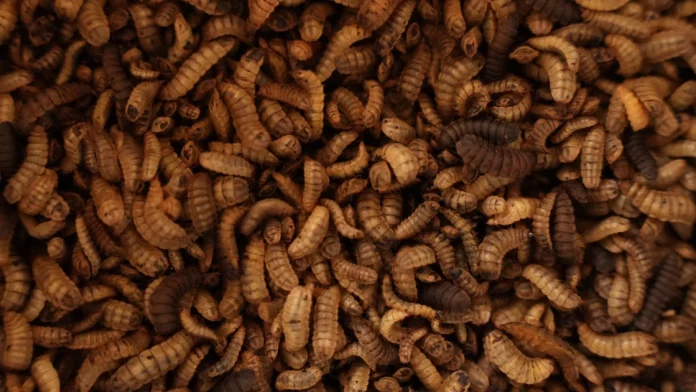Farmers across the country have long struggled with high production costs due to costly feeds, which completely eat up their profits, leaving them in losses.
Some farmers, however, have embraced some ways to cut production costs, including using home-made feed, which is affordable.
Joel Muranda, a poultry farmer in Bukhaywa village, in Kakamega County, has adopted black soldier fly (BSF) farming, a cost-effective alternative to commercial feeds, cutting his feed costs by 40 percent.
Black soldier flies are said to be rich sources of proteins and fats, making them a nutritious and cost-effective alternative to traditional poultry feed.
“BSF larvae feed on organic waste, turning it into rich compost. This manure, called frass, boosts crop production, while the larvae provide high-protein feed for my chickens. It’s a win-win, since all the waste that could pollute the environment, like banana peels, rotten tomatoes, and potatoes, is used to feed the black soldier larvae and pupae, creating a pollution-free environment,” Joel explains.
Naomi Waithera Kamau, another farmer in Kiambu county, has also discovered the potential of black soldier fly in animal feed formulation.
Waithera, who manages Precious Piggery Farm says using black soldier flies in pig feed has significantly improved their health, resulting in higher returns.
Poultry farming in Kenya – How Leah makes Ksh. 120,000 per month
“Since incorporating black soldier fly into my feeds, my pigs reach the desired weight in significantly less time. Moreover, the quality of our animals has surged, resulting in higher returns on investment,” she explains.
Black soldier fly farming offers numerous benefits, including a sustainable solution for food, feed, fertilizer, and environmental conservation.
Despite their benefits, there have been numerous challenges affecting black soldier fly farming, particularly the threat of forensic mites and parasites.
The Life Cycle of a Black Soldier Fly
According to Mark Mbithi, an agricultural expert, the black soldier fly life cycle begins when female black soldier flies lay tiny, cream-colored eggs in clusters near decomposing organic matter. These eggs hatch within four days.
The hatched larvae are voracious eaters, consuming food waste, kitchen scraps, and agricultural byproducts. This is the most crucial stage for farmers, as the larvae grow quickly and become protein-rich poultry feed.
After about two weeks, the larvae stop feeding and transition into pupae, preparing for adulthood. During this stage, they produce organic manure (frass) that enhances soil fertility.
Fully matured flies emerge, mate, and lay new eggs, continuing the cycle. Interestingly, adult black soldier flies do not eat; they live only to reproduce.









